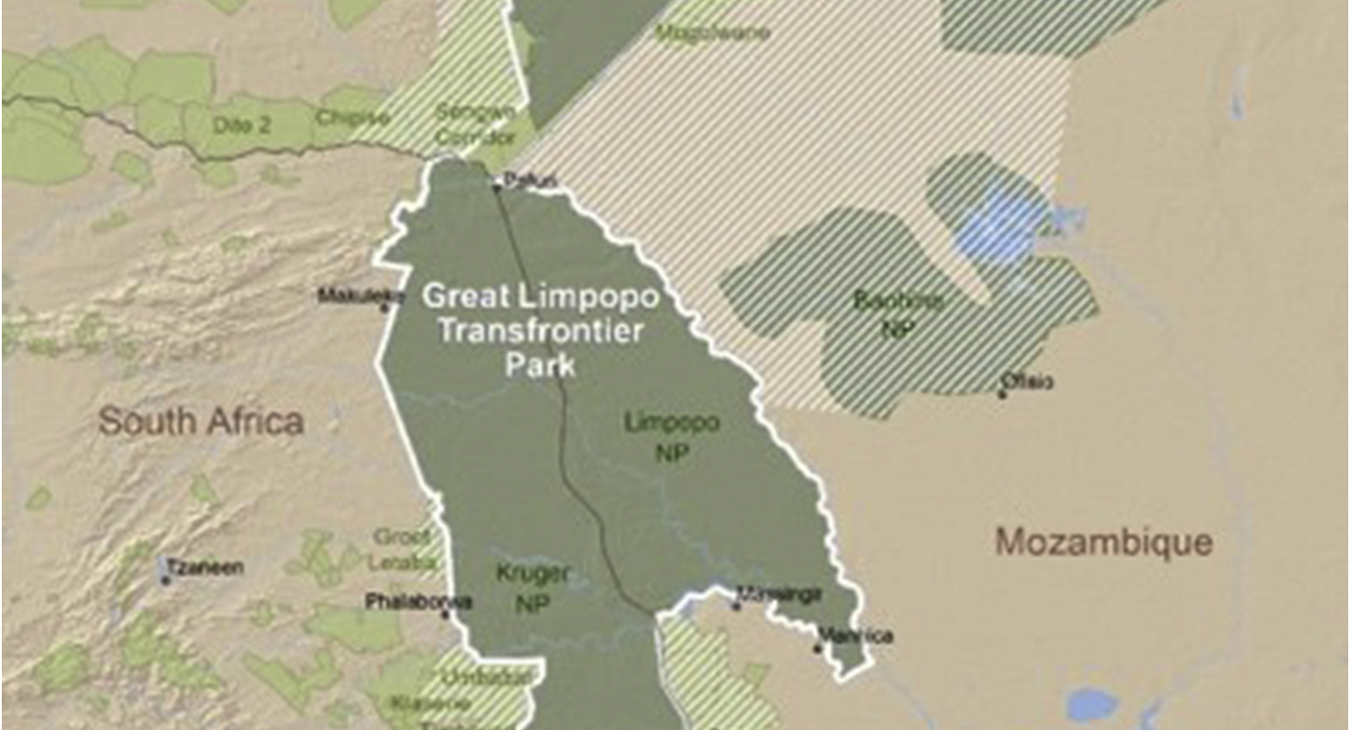UT Austin
CSU
Univ. of Pretoria
Witwatersrand Univ.
Southern African Wildlife College
Endangered Wildlife Trust
Universidade Licungo
Stellenbosch University
Georgia State University
The TREPA project aims to support critical surveillance, biosafety, and security (SB&S) efforts by creating new, and enhancing existing, capacity to address risks at the intersection of human-animal-ecosystem health, wildlife trafficking, and zoonotic pathogens using operations research and location science.
The TREPA Project (Threat Reduction for the Environment, People and Animals), whose official name is ‘Reducing security risks from the intersectionality of wildlife trafficking & biosafety from zoonotic pathogens in Africa’s Greater Limpopo Transfrontier Conservation Area’ identified that the intersectionality of wildlife trafficking and biosafety from zoonotic pathogens and vectors has not received significant attention although there are serious implications for health and national security. Therefore, TREPA aims to support critical surveillance, biosafety, and security (SB&S) efforts by creating new, and enhancing existing, capacity to address risks at the intersection of human-animal-ecosystem health, wildlife trafficking, and zoonotic pathogens using operations research and location science. Our objectives are to: 1) assess existing SB&S efforts and detection networks for wildlife trafficking and zoonotic pathogens using the One Health approach; 2) fill observed gaps in the baseline dataset with novel insight about wildlife trafficking, anthrax transmission, animal behavior and use of wildlife in traditional medicine; 3) design operations research and location science-based surveillance and response models to leverage existing and train up new capacity, technology and health systems; 4) harmonize a “network of networks” to promote joint SB&S efforts that encourage timely reporting, emerging disease detection and outbreak response.
UMD GEOG department Participants include - Chris Fohringer, Juan Martin Dabezies, and Natalia Muñoz Cassolis
More information on this project can be found here: https://conservationcriminology.com/trepa/

